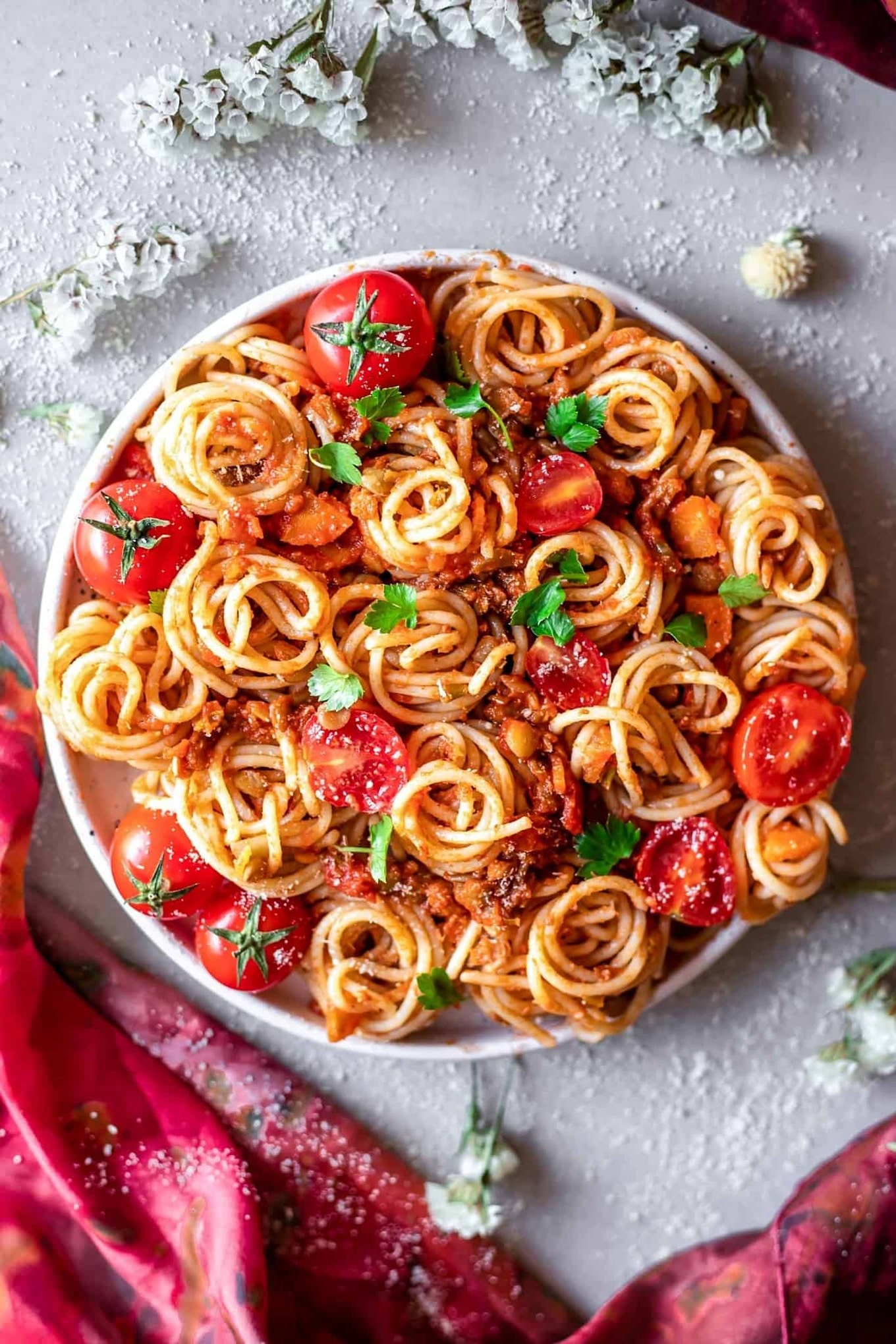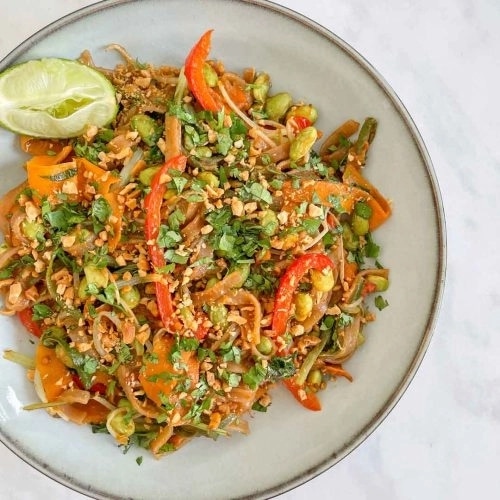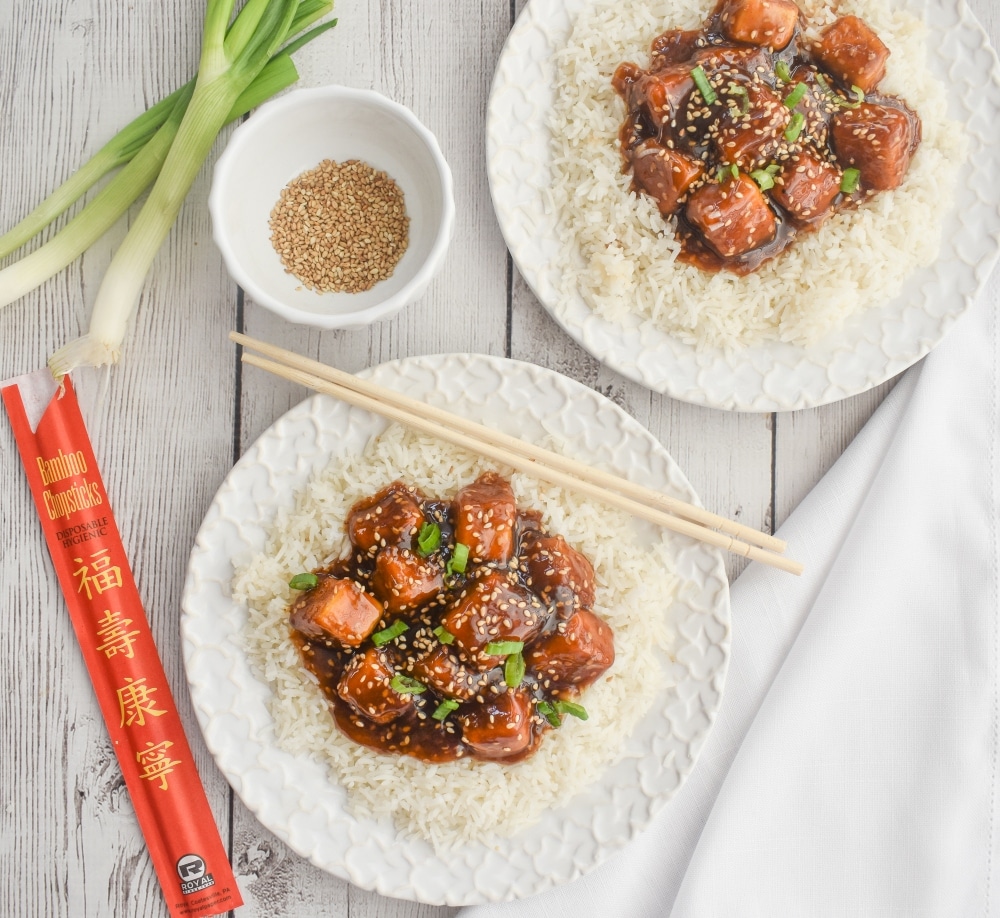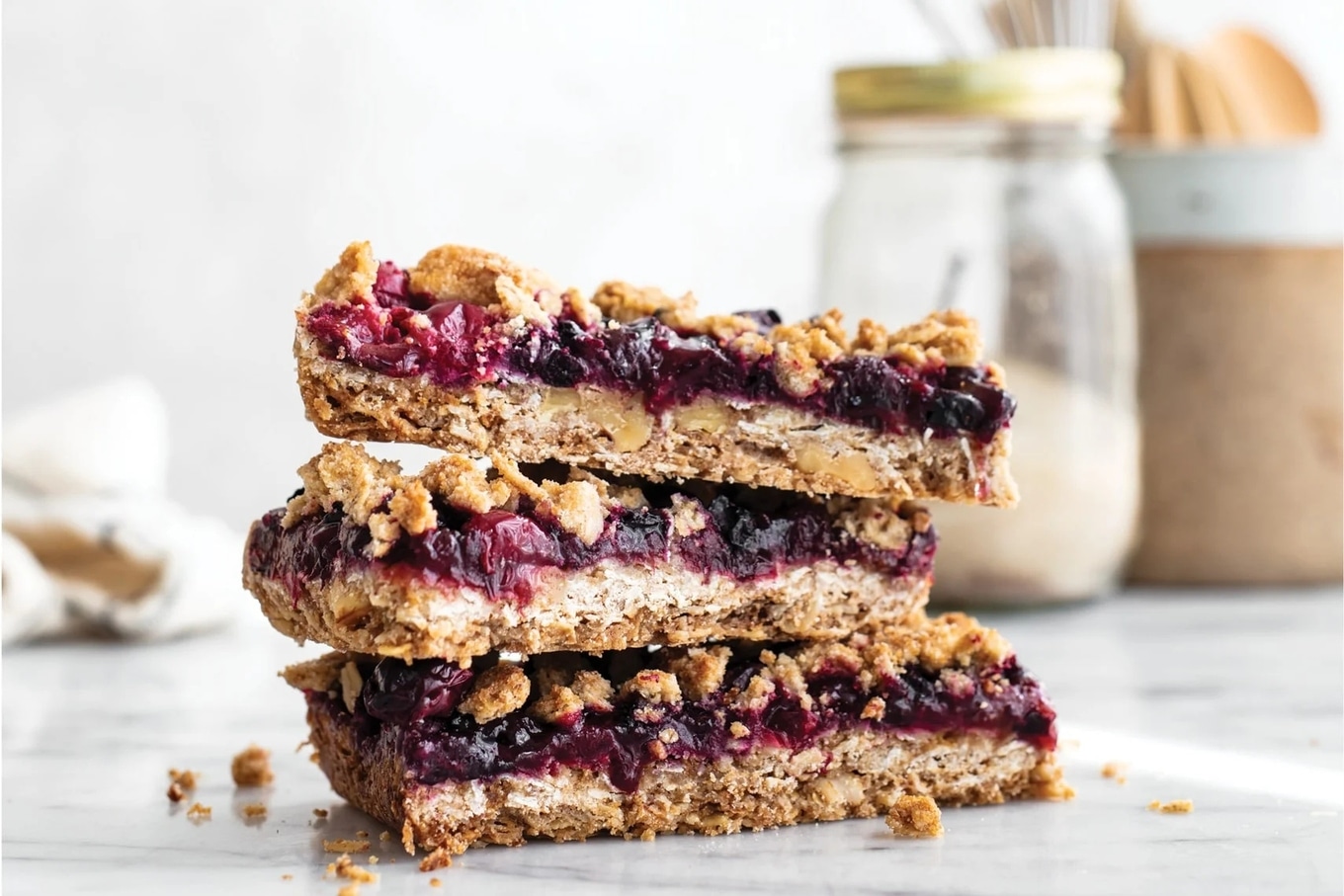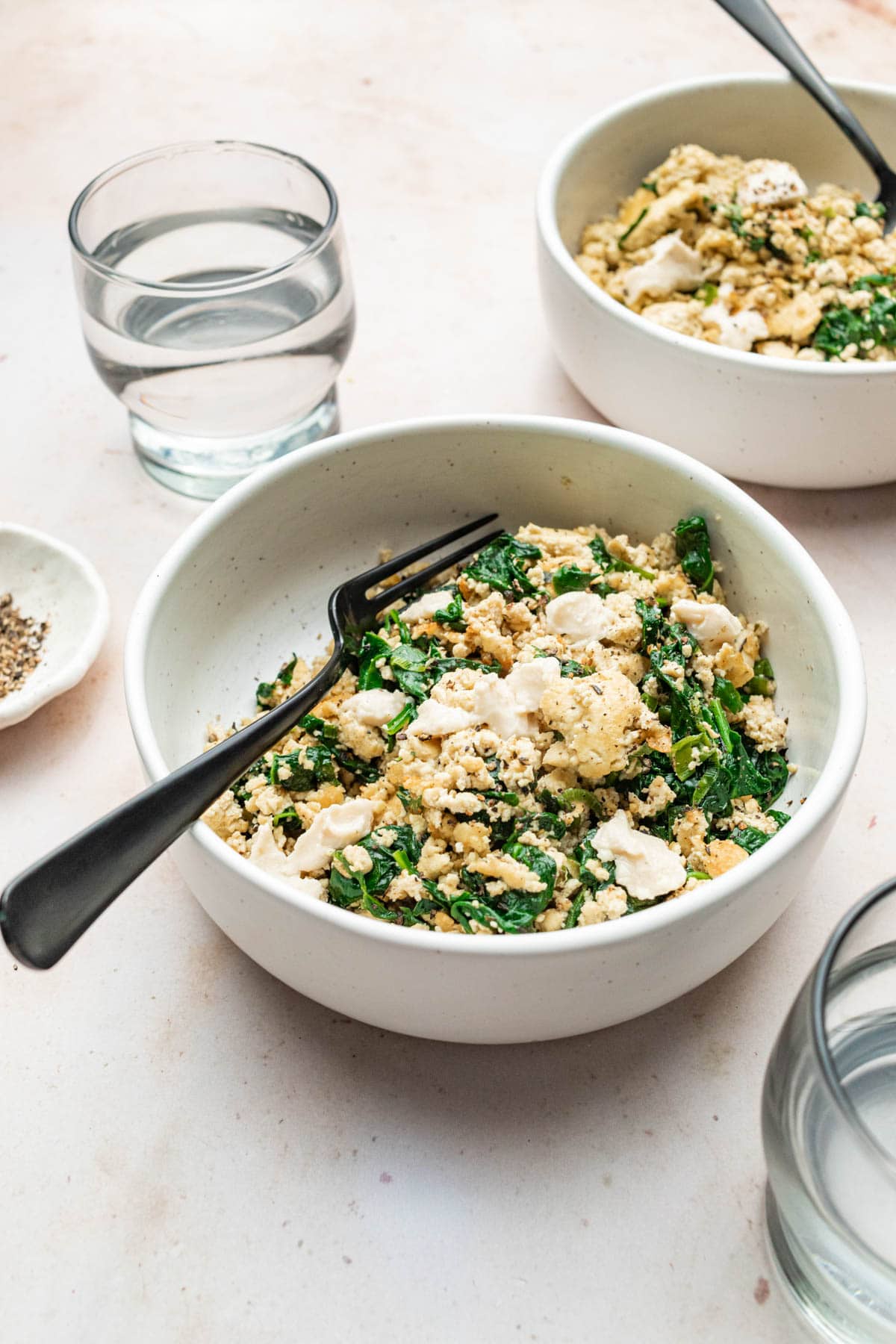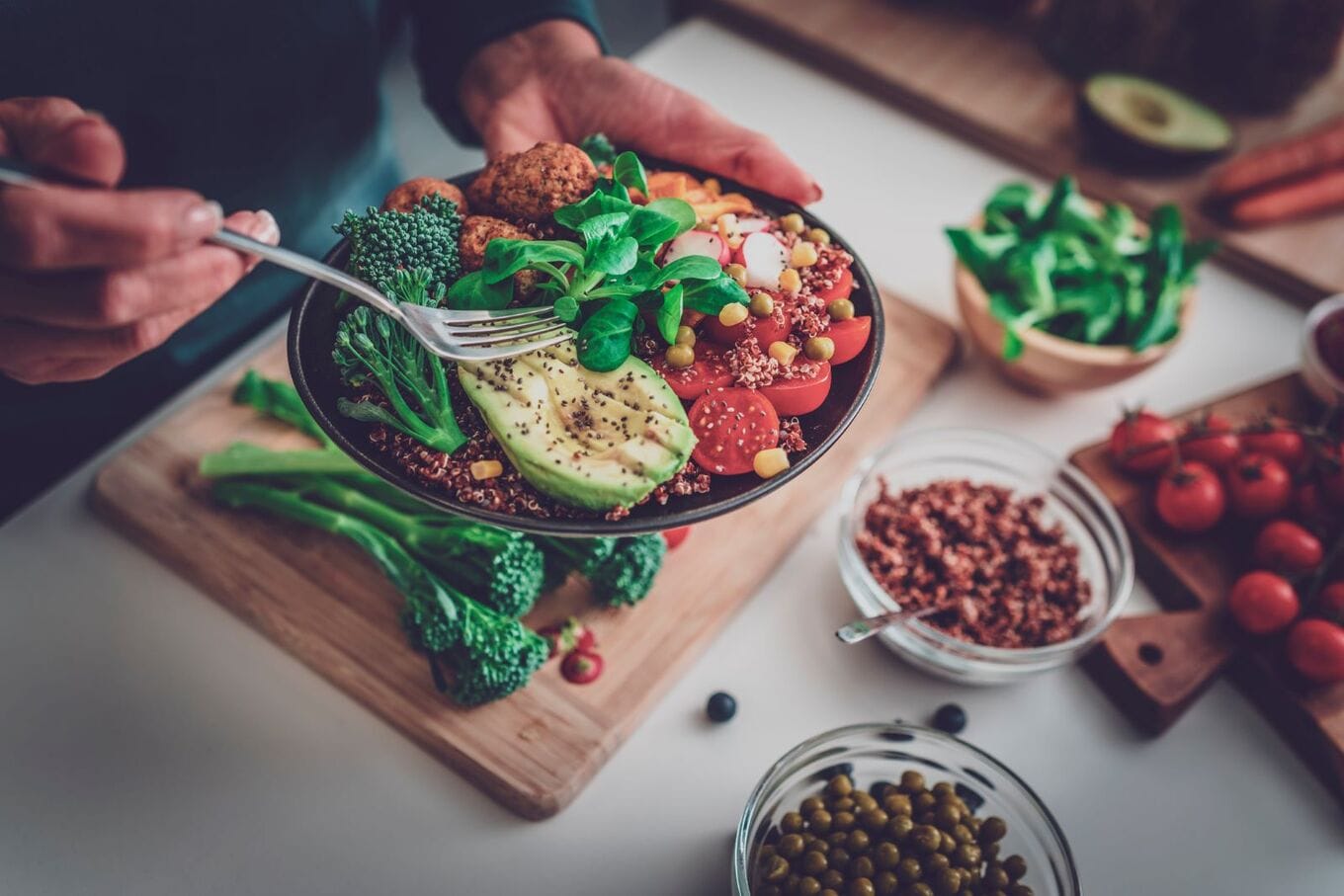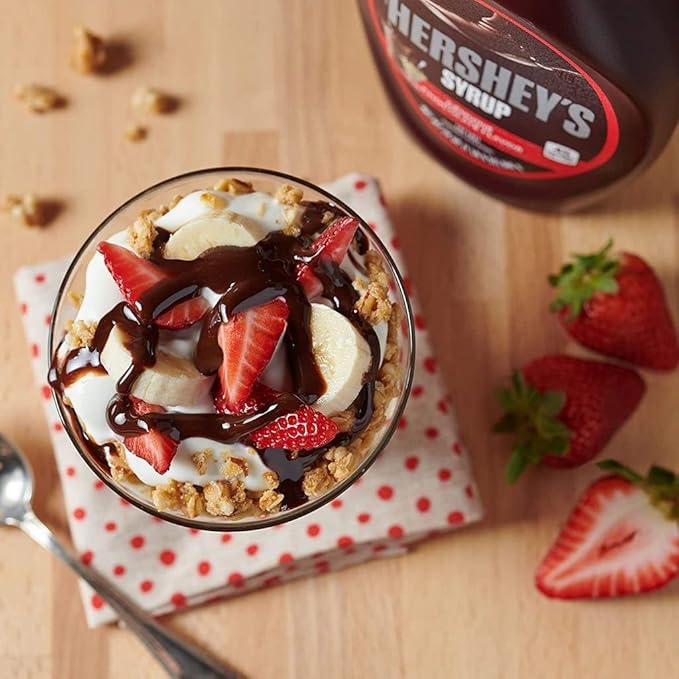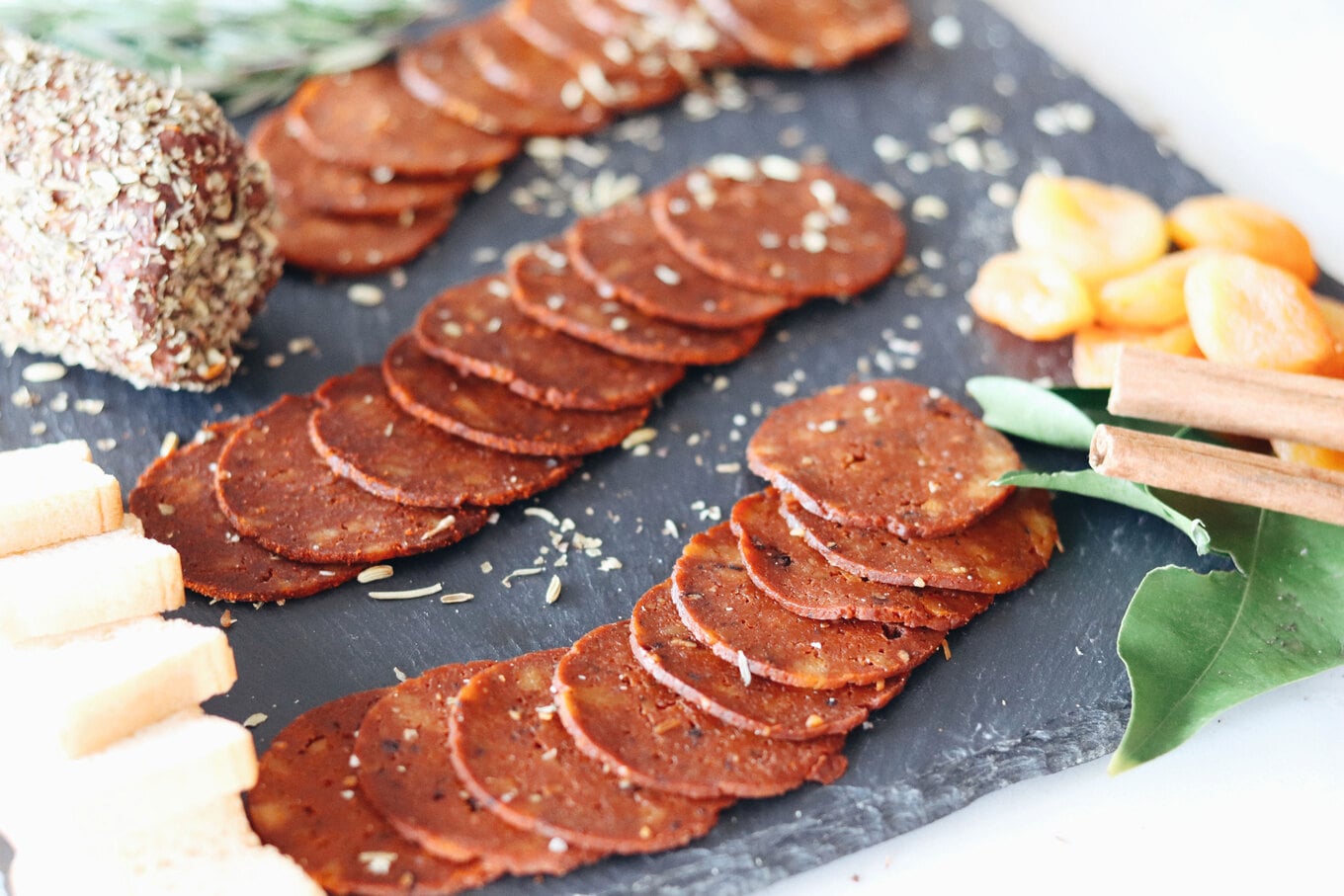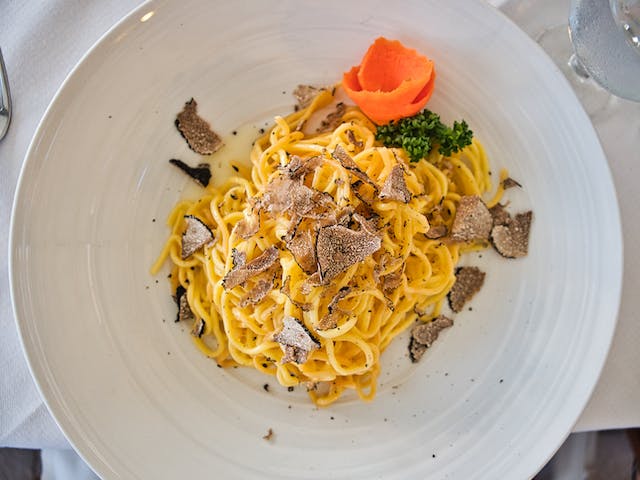If you or someone you know suffers from irritable bowel syndrome (IBS), you’ll know that the symptoms are, to put it simply, not fun. It’s an incredibly common condition—impacting five to 10 percent of the world’s population—and can cause everything from mild bloating to severe cramps and constipation.
While the exact cause of IBS is unknown, research does suggest that the condition can be linked to factors like anxiety, stress, and food. For some people, their IBS may flare up during difficult times in their lives, while for others, it may be set off by certain foods.
To determine if you have IBS and what might be causing it, it’s important to consult with a healthcare provider before you start attempting treatments, one of which is a low-FODMAP diet. The latter is a restrictive way of eating that aims to determine which foods may be contributing to your individual IBS symptoms.
But what actually are FODMAPs? And what if you’re vegan, can you still try the low-FODMAP diet? Here’s what you need to know.
Table of Contents
What are FODMAPs?
FODMAP stands for fermentable oligosaccharides, disaccharides, monosaccharides, and polyols. But that all sounds quite long and complicated, so that’s why they’re usually just called FODMAPs. But what, exactly, are they?
“Essentially, FODMAPs are a group of carbohydrates that are more likely to ferment in our guts,” Tori Vasko, MS, RD, CNSC, who is also a recipe developer for vegan blog Easy Chickpeasy and, crucially, a dietitian and IBS sufferer, told VegNews. “Because of this, FODMAP foods can cause pain or other symptoms for people with IBS.”
Many foods are high in FODMAPs, including apples, wheat, garlic, onions, and artichokes. But not all of these foods will cause an issue for everyone. “Many people eat foods high in FODMAPs every day without a problem, however, those with IBS can have an improvement in their symptoms by avoiding some of these foods high in FODMAPs,” Vasko explains.
What is a low-FODMAP diet?
One way to figure out which FODMAP foods might be affecting you is to follow a low-FODMAP diet. Because this is a very restrictive way of eating, many experts recommend that you only do so for a few weeks, just to figure out which foods are impacting you.
Common IBS symptoms to look out for include diarrhea, constipation, cramping, excessive wind, bloating, nausea, and backache.
To follow the low-FODMAP diet effectively, first, you need to cut out all high FODMAP foods (you can find an extensive list here at IBS Diets). After that, slowly reintroduce different foods to figure out which ones might be causing your symptoms. “In the end, you may find that you only need to avoid a handful of foods for much less pain and bloating in your day-to-day life,” says Vasko.
Pexels
Can you follow a low-FODMAP diet as a vegan?
A low-FODMAP diet is restrictive, and a vegan low-FODMAP diet is even more so, there’s no getting away from it. But that said, if you’re plant-based and you’re trying to figure out which foods might be giving you painful symptoms, it is possible to follow both a vegan diet and a low-FODMAP diet at the same time.
But again, you should consult with a dietitian or healthcare provider first before you do so, just to ensure you are doing so safely and correctly.
“There are many vegan foods that are low in FODMAPs,” says Vasko. “Low-FODMAP protein sources include firm tofu, tempeh, peanuts, quinoa, and walnuts. As far as fruits and veggies are concerned, kiwi, cantaloupe, oranges, bell peppers, green beans, and oyster mushrooms are low FODMAP, to name a few.”
However, Vasko also points out that the FODMAP content of foods can change depending on how you cook them. “Some foods that are considered to be low in FODMAPs can become a higher FODMAP food depending on how they are prepared or how much you eat,” she explains. “For this reason, it can be helpful to work with an experienced dietitian to guide the process of a FODMAP elimination diet.”
Other examples of low-FODMAP vegan foods include plant-based milk, rice, buckwheat, edamame, black tea, black coffee, and cranberry juice, says Kelsey Costa, MS, RDN. But go easy on the caffeine, she advises. “Caffeine can increase the risk of digestive issues in some individuals, so monitoring your body’s response when consuming caffeine-containing beverages is essential,” she told VegNews.
Costa also reiterates that people should not be looking to avoid all high FODMAPs permanently. After all, most of these, like kidney beans, falafel, asparagus, beetroot, button mushrooms, and sugar snap peas, are key parts of a healthy balanced plant-based diet.
“Many foods high in FODMAPS, such as garlic, avocados, and broccoli, are incredibly healthy and should not be avoided by those who can tolerate them,” notes Costa. “A low-FODMAP diet should be followed under the guidance of a registered dietitian nutritionist (RDN) or healthcare provider to ensure that all essential nutrients are consumed, and individual nutrient needs are met.”
Vegan low-FODMAP recipes
If you want to figure out if certain foods are causing your IBS symptoms, and you’ve been cleared by your healthcare provider to give a low-FODMAP diet a shot, you might be thinking, what can I cook now? So, to help give you a few ideas, we’ve compiled this quick list of tasty, nutritious, low-FODMAP recipes.
1 Vegan Bolognese
Veggie Bolognese is a comforting midweek favorite, and it’s quite easy to make it low FODMAP and vegan without sacrificing those signature flavors. Instead of chopped garlic, opt for garlic-infused olive oil, and instead of regular onions, opt for sliced spring onions instead.
get the recipe
2 Pad Thai
Pad Thai is a delicious protein-packed option for people on a low-FODMAP, vegan diet. Ingredients include brown rice noodles, natural peanut butter, soy sauce, and, again, garlic-infused olive oil.
get the recipe
3 Sesame-glazed tofu
For many vegans, tofu is the backbone of their diet, because it’s just so versatile. It’s also a great source of protein, and it’s low FODMAP, too. For an ultra-flavorful dinner, cover in cornstarch, paprika, garlic-infused oil, and soy sauce.
get the recipe
4 Fruit crumble bars
If you’ve got a sweet tooth, you don’t have to miss out on dessert when you’re going low FODMAP. These crumble bars are satisfyingly sweet due to the fruit content, but they’re also a great source of fiber, too.
get the recipe
5 Spinach and feta tofu scramble
For a high-protein breakfast that is going to fuel you through until lunch, a tofu scramble is a great option. Cook with avocado oil, and add spinach and vegan feta for extra nutrients and flavor.
get the recipe

